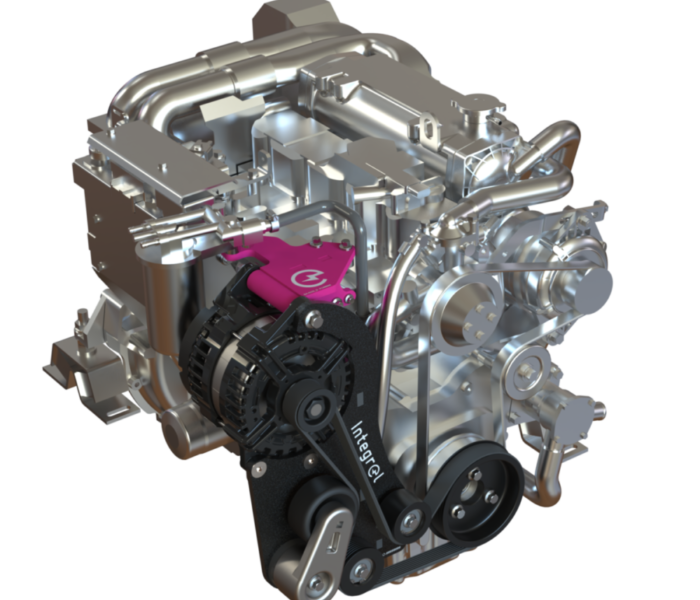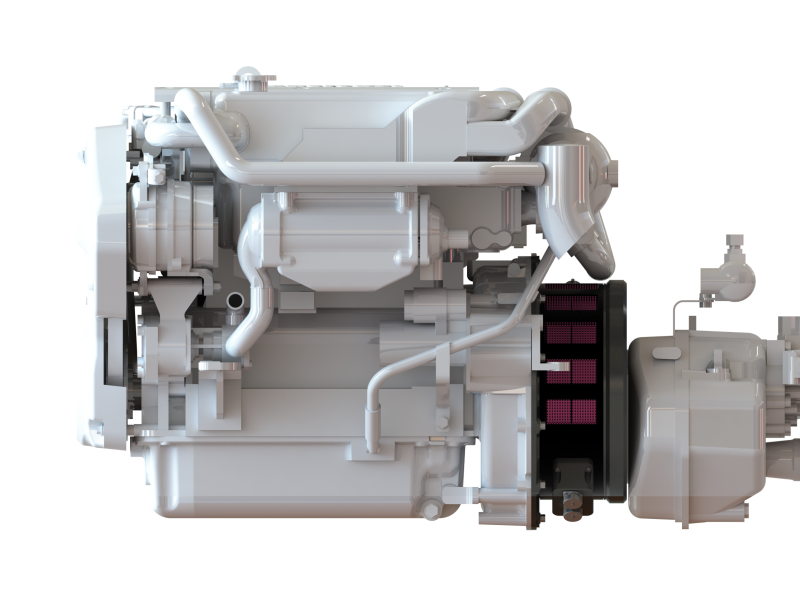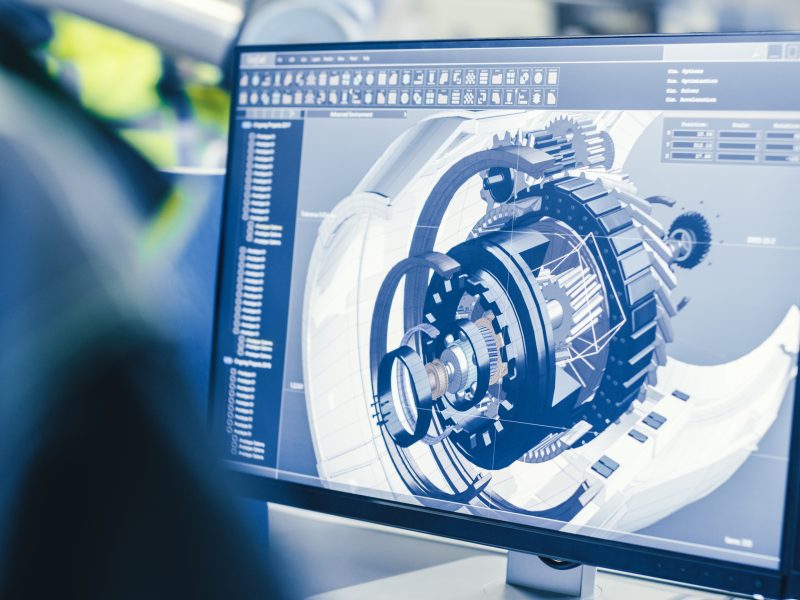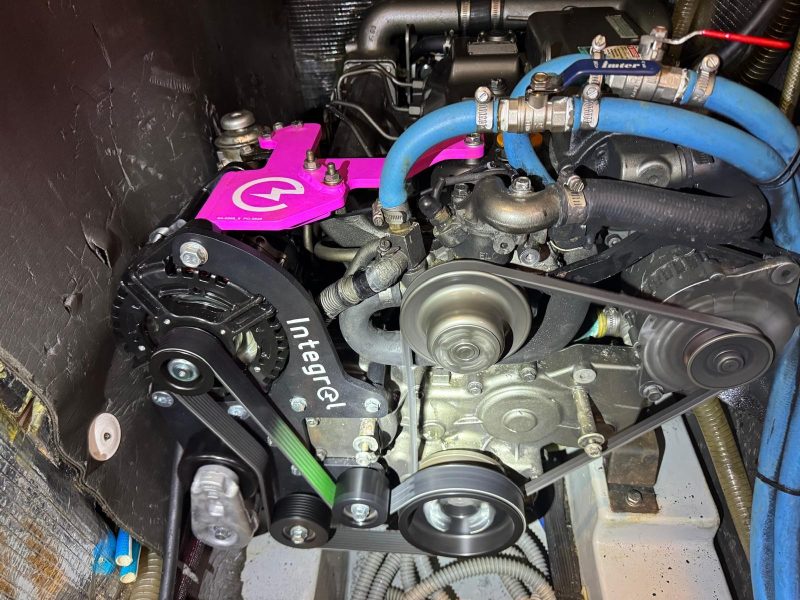We make no secret of the fact that Integrel E-Power improves the fuel efficiency of a boat by 25% or more. In this blog, we are going to demonstrate how using Integrel E-Power can save money on fuel, and helps to reduce a boat’s carbon footprint too!
One of our valued customers recently posted some real-world fuel usage data taken while using his brand-new Leopard 45 catamaran. The following graph is a plot of the data posted on the Facebook group Integrel on a boat.
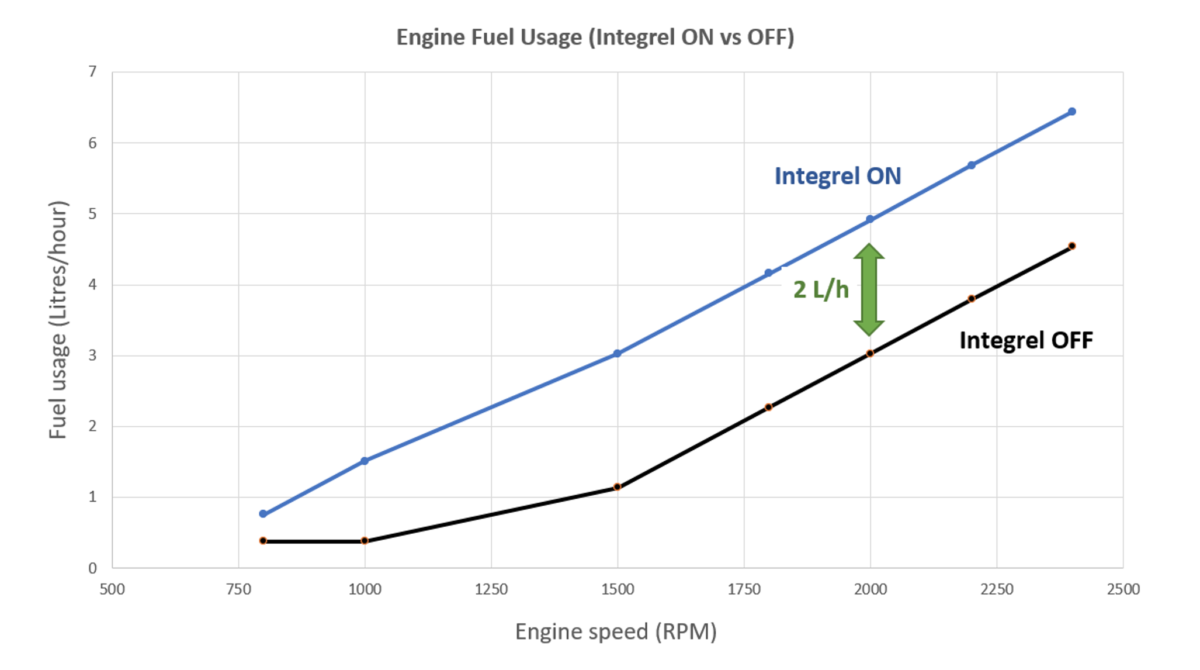
At speeds above 1500 RPM, the engine uses a constant 2 litres/hour more fuel with Integrel E-Power on and generating power than when Integrel is turned off. Under normal circumstances, Integrel generates 8kW of power at 2000 RPM (see note 1).
Now, let’s take a look at diesel generator fuel usage. Victron Energy published a handy marine generator test document comparing the performance of various diesel generators. Graph 5 on page 13 of the document (reproduced below with the vertical scale converted to Litres/hour, see note 2), shows the fuel consumption of several 7-11kW generators.
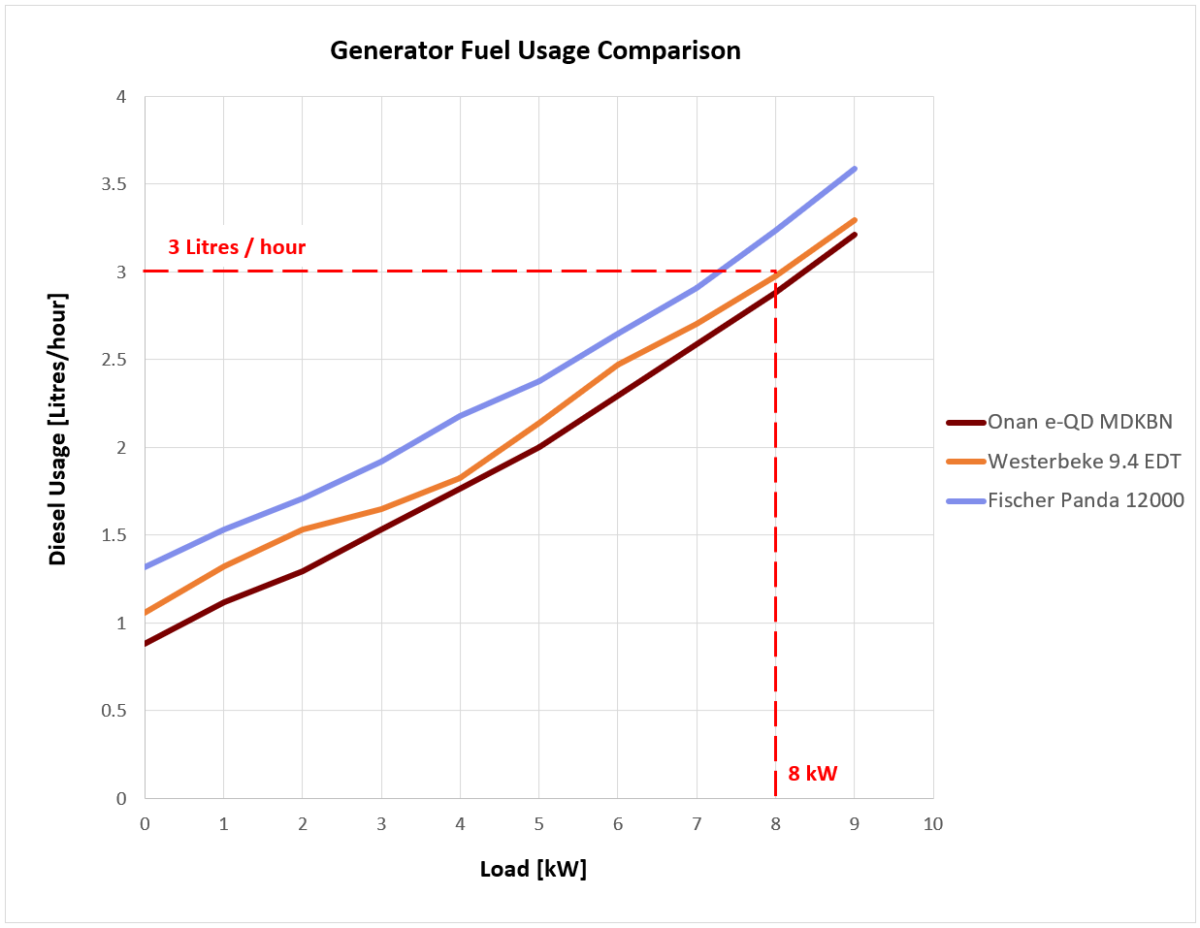
The Westerbeke 9.4 generator uses nearly 3 litres/hour of fuel to generate 8kW, compared to Integrel E-Power which only uses 2 litres/hour. Similar sized diesel generators use fuel at roughly the same rate as the Westerbeke, with some newer variable speed generators using a little less.
Putting it all together, we can make the following observations:
- Integrel E-Power reduces fuel costs by up to 33% to generate 8kW of power (2L/h instead of 3L/h).
- Integrel E-Power reduces carbon footprint by up to 2.6 kilograms CO2 each hour (see note 3).
- Integrel E-Power saves the maintenance costs of a standalone diesel generator.
Notes
- Power is measured in Watts (1000W = 1kW), and is simply a measure of Energy used over a period of time.
- To convert the Victron graph to litres/hour, simply divide the vertical axis by 0.85 since 1 litre of diesel fuel weighs about 0.85 kilograms.
- Burning a litre of diesel fuel produces around 2.6 kilograms of carbon dioxide.
Ready to choose Integrel?
Get in touch today and our friendly, experienced team can help you start living a more luxury and environmentally friendly life out on the water…

